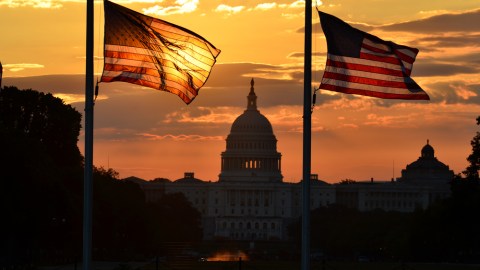The Open Data Movement – Leveling the Playing Field For Consumers

American consumers gained considerable knowledge and power when a huge Medicare database was recently distributed to the public in easy-to-understand language. The data revealed what many patients have long suspected – hospitals charge Medicare tremendously different prices for the same procedures.
According to The New York Times, for example, “in Saint Augustine, Fla., one hospital typically billed nearly $40,000 to remove a gallbladder using minimally invasive surgery, while one in Orange Park, Fla., charged $91,000 [and] … in one hospital in Dallas, the average bill for treating simple pneumonia was $14,610, while another there charged over $38,000.”
This wasn’t the first time that a freshly unearthed government database bolstered the average consumer. Earlier this spring, the U.S. Consumer Financial Protection Bureau (CFPB) released detailed – but fully understandable – data that showed which banks have the most consumer complaints. The CFPB had previously issued data on credit card complaints; but now it has broadened its data distribution to include customer protests about mortgages, student loans, credit scores, and other products.
As BloombergBusinessweek, noted, the CFPB database has already had an impact on improving consumer service: “Response times have sped up by 3 percent since the database came online … And banks are giving more customers a break: The number of credit-card cases Capital One Financial, Citigroup, American Express, and GE Capital Retail Bank have resolved in clients’ favor rose 12.9 percent in the past six months.”
The Medicare and CFPB data disclosures are huge wins for the open-data movement, which seeks to democratize a vast treasure trove of accumulated government data. That consumers can now command equal footing with big, established, and often opaque institutions like banks or hospitals, is yet another reason to support open data.
New York Law School professor Beth Noveck, the former U.S. Deputy Chief Technology Officer for Open Government, agrees that this type of disclosure increases accountability and “starts from the premise that consumers, when given access to information and useful decision tools built by third parties using that information, can self-regulate and stand on a more level playing field with companies who otherwise seek to obfuscate.”
These “smart” data disclosures, adds Cass Sunstein, the former U.S. administrator of the White House Office of Information and Regulatory Affairs (OIRA), also offer “a new tool that helps provide consumers with greater access to the information they need to make informed choices.”
A good case study can be found at the Department of Transportation (DOT), which has been publishing data on airlines’ on-time performance as well as consumer complaints against airlines.
Another proof point is the Higher Education Opportunity Act of 2008, which was designed to increase transparency and consumer information on student loans, college costs, and other financial issues. Determined to make sure that this law is as effective as possible, the U.S. Department of Education now provides government data and online tools help students and families choose a college and decide how to finance their education.
As the Medicare, CFPB, Department of Transportation and Department of Education data disclosures indicate, the executive branch of the federal government is a major player in the ongoing open-data movement.
But the agenda for open data is also being set at the local level.
Last year, for instance, Yelp partnered with San Francisco and New York City to develop the Local Inspector Value-Entry Specification (LIVES), an open-data standard that allows municipalities to publish restaurant inspection information for consumers on Yelp. Other cities, such as Austin, Texas, are also publishing restaurant inspection data online.
Companies are helping to make open data a widespread reality for consumers, too.
Socrata, the company I lead, for example, offers customers like Medicare and CFPB – as well as a host of states and cities – a digital platform to publish complex data in a simple and easy way.
BillGuard utilizes the CFPB’s new credit card complaint database to help consumers find deceptive, erroneous, and fraudulent charges on their credit card and debit card bills.
And iTriage has harnessed downloadable information from the Department of Health and Human Services to develop a mobile application that has helped eight million people find the best local doctors and hospitals that meet their needs.
Regardless of where it comes from, though, open data benefits consumers and helps spread much-needed digital sunlight so that the average citizen is no longer forced to remain in the dark.
_____________________________________________________________________________________________
Socrata is a Seattle-based cloud software company that is focused exclusively on democratizing access to government data.
Image courtesy of Shutterstock.





